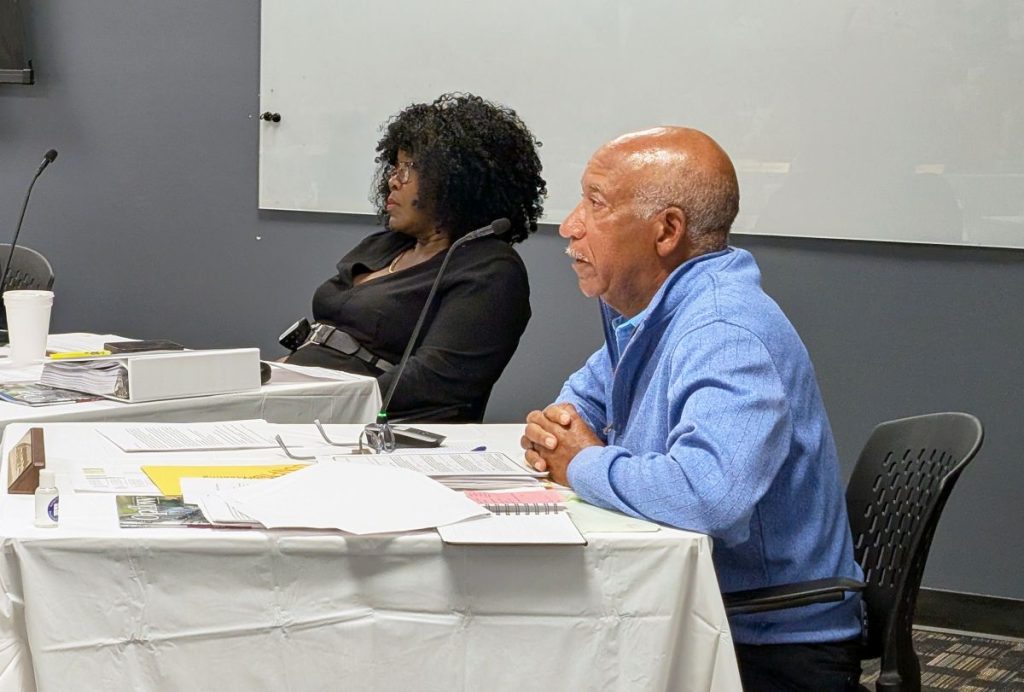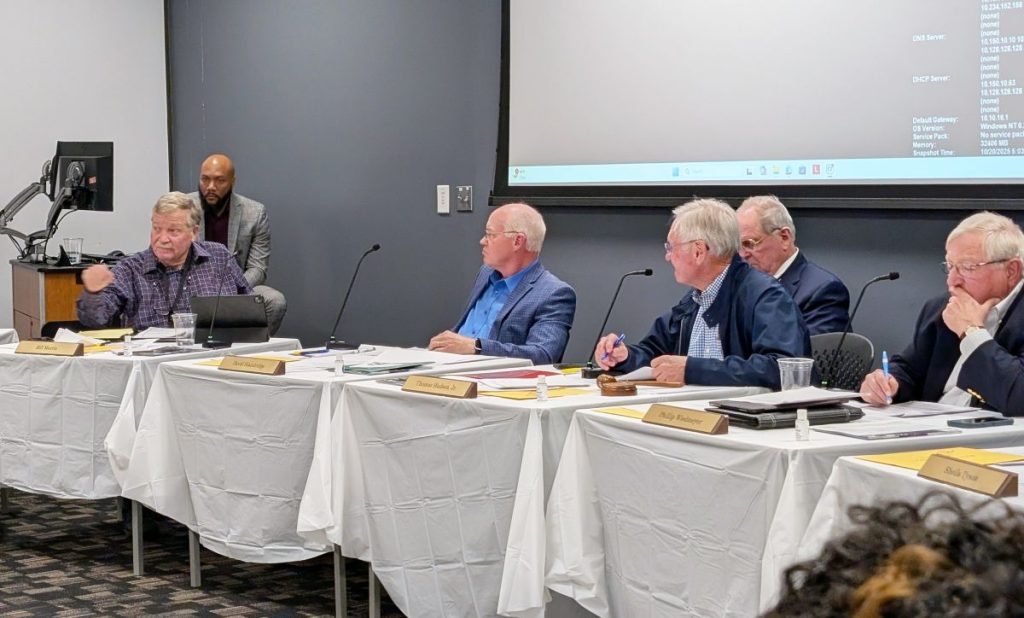Government
Water Works Board Members Say They’ve Been Left Out of CEO Search

Donate today to help Birmingham stay informed.
Central Alabama Water might soon hire a chief executive, a new state-mandated position for the utility, with an annual salary of $650,000 to $750,000, plus benefits.
But board members appointed by Birmingham officials During a CAW board meeting Monday evening expressed displeasure at not being included in the search process.
“I’m thinking, at some point in time in the very near future, we’re going to be asked to vote on a new chief executive officer,” board member Jarvis Patton Sr. said. “I don’t know who’s applied, or did they apply … . I just, I’m confused about a lot of this.”
An emergency meeting scheduled for noon Monday and then canceled was to have involved discussion of a CEO candidate. A state law that restructured the former Birmingham Water Works board and shifted the balance of representation away from the city in favor of the suburbs requires the utility to hire a chief executive. CAW already employs a general manager, Mac Underwood, whose salary is $446,118.
The move comes as CAW managers have proposed foregoing employee raises and leaving rank-and-file positions unfilled in an effort to balance a preliminary 2026 budget.
While board members didn’t review a CEO candidate at their regular meeting Monday, they did discuss the search and voted 4-2, with one board member absent, to pay an invoice from a search firm.
In the board’s July 7 meeting, board Chairman Tommy Hudson named himself, Vice Chairman Phillip Wiedmeyer and board member David Standridge to a CEO search committee. Board member Sheila Tyson questioned at the time why she and Patton, the two board members appointed by Birmingham officials, were not asked to be part of the committee.
“We don’t get a chance to choose between several candidates?” Tyson asked Monday, speaking for board members who aren’t part of the search committee. “Are you going to pick a person and stuff it down our throats?”
Hudson said the committee will make a recommendation and board members will have an opportunity to vote.
The board voted July 21 to hire Russell Reynolds Associates to assist with the search and determine the CEO’s compensation. Underwood said the contract with the head-hunting company calls for the water works to pay the firm one-third of the CEO’s total annual compensation package and a $165,000 retainer, plus expenses.
The board approved payment of an invoice from Russell Reynolds Associates for $58,300 Monday and for the same amount in August.
Patton and Tyson questioned the invoices and how they fit into fees the board had agreed to pay.
“So, are we just paying him month by month?” Patton asked, questioning whether such payments would be part of the agreed-upon fees or in addition to them. “I’m trying to figure, at the end of the day, how much are we paying this man and what service did he provide? And do we know anything about this service? I’ve never seen him.”
Before calling for a vote on the invoice Monday, Hudson said the contract was executed months ago and he couldn’t recall the terms of it.
John Matson, manager of public relations for the water works, later provided information stating that the $165,000 retainer would be credited against the fee of one-third of the hired candidate’s first year total compensation and would be payable in three equal installments. The contract allocates $9,900 for search-related expenses, according to information Matson provided.
One-third of the retainer plus the expense allocation is $58,300 – the amount of the submitted invoices.

Board Says No to Hiring Lawyers to Negotiate City Backing of Loans
Also at Monday’s meeting, the board tabled a resolution to hire a legal firm to negotiate a potential agreement between CAW and the city of Birmingham by which the city would support CAW’s application for federal loans to replace lead service lines.
The city’s support is needed due to an ongoing lawsuit Birmingham officials filed challenging the state law that restructured the water works and its board. The federal government needs assurance that, should the city win the lawsuit, any new water works board put in place would honor the loans, CAW external attorney Shan Paden said.
Service lines connect large pipes that run under streets to homes and businesses, and where lead lines are present, they are the largest source of lead in drinking water, according to the U.S. Environmental Protection Agency. There is no safe level of lead in drinking water, according to the agency and medical research.
Through the Lead and Copper Rule Improvements, the federal government is requiring public water utilities to replace all lead service lines by 2037. The federal loans of $183 million CAW could receive for the project come with substantial principal forgiveness and low interest rates.
Board member Bill Morris questioned why an additional law firm needed to be hired when CAW already contracts with multiple legal firms.
Birmingham Mayor Randall Woodfin’s response to the water works’ request to support the loan was to call on the water works to: create an internal legal department, utilize minority contractors and avoid a rate increase.
Paden said the water works will have to raise rates if it doesn’t get federal loans to replace service lines, federal guidelines will require minority-contractor participation in the project and an internal law department wouldn’t save the utility money.
“I think it’s ludicrous for the mayor to ask that,” Paden said.
Patton, the mayor’s appointee to the board, responded, “Well, the mayor thinks it’s ludicrous for what has happened to happen.”
Wiedmeyer said the mayor is holding residents of Birmingham, where water works managers say most lead lines are located, and ratepayers hostage.
“Just like what’s going on in Washington right now,” Wiedmeyer said. “That’s the same kind of game that’s being played.”
Patton replied that customers are not being held hostage. “You want them to think they’re being held hostage,” he said.


